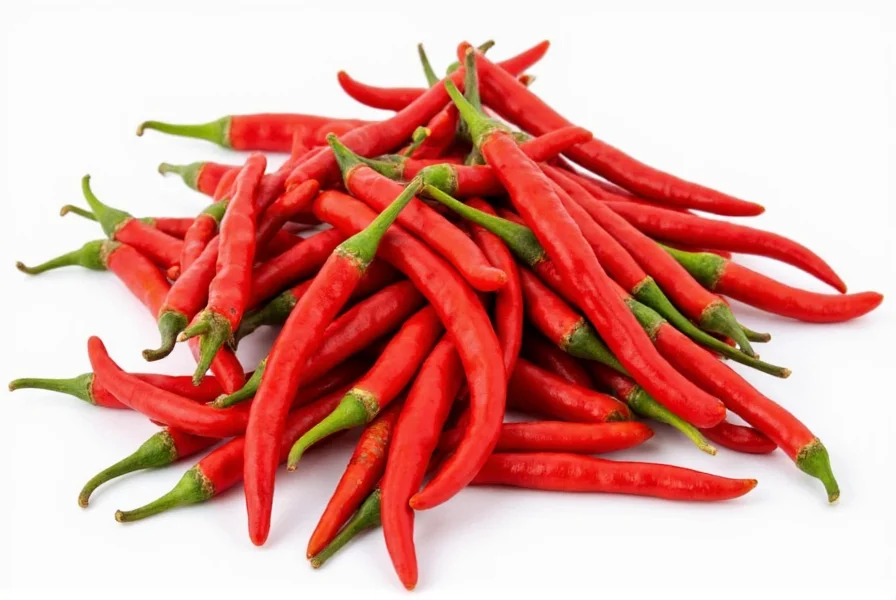Cayenne pepper isn't just a kitchen staple for adding heat to dishes—it's a nutritional powerhouse with centuries of traditional medicinal use. Modern research continues to validate many of its health properties while revealing important considerations for safe consumption. Let's explore what science says about this vibrant red spice.
What Makes Cayenne Pepper Unique
Cayenne pepper (Capsicum annuum) gets its characteristic heat from capsaicin, the compound responsible for most of its health effects. This spice also contains significant amounts of:
- Vitamin A (as beta-carotene)
- Vitamin C
- B vitamins
- Manganese
- Antioxidants like flavonoids
| Key Nutrient | Amount per Teaspoon (1g) | Health Significance |
|---|---|---|
| Capsaicin | 0.2-1.0% | Pain relief, metabolism boost |
| Vitamin A | 15% DV | Immune function, vision health |
| Vitamin C | 8% DV | Antioxidant protection, collagen synthesis |
| Manganese | 3% DV | Bone health, metabolism |
Science-Backed Health Benefits of Cayenne Pepper
Pain Relief Properties
Topical capsaicin creams are FDA-approved for treating nerve pain and arthritis. When consumed, capsaicin may help reduce headache and muscle pain by depleting substance P, a neuropeptide involved in pain signaling. Research published in the Journal of Clinical Rheumatology found that regular capsaicin consumption reduced osteoarthritis pain by 50% in study participants.
Metabolic and Weight Management Support
Multiple studies indicate that capsaicin can temporarily increase metabolic rate by 4-5% and reduce appetite. A 2021 review in Nutrients concluded that regular cayenne pepper consumption may help with modest weight loss—approximately 0.5 pounds per week—when combined with a healthy diet. This makes cayenne pepper potentially beneficial as part of a comprehensive approach to weight management.

Cardiovascular Health Benefits
Research suggests cayenne pepper may help maintain healthy blood pressure and cholesterol levels. A 2022 study in the American Journal of Clinical Nutrition found that regular consumption of capsaicin-rich foods was associated with a 13% lower risk of hypertension. The spice appears to improve blood vessel function and reduce LDL cholesterol oxidation.
Anti-Inflammatory and Antioxidant Effects
Cayenne pepper's rich antioxidant profile helps combat oxidative stress. The capsaicin and carotenoids in cayenne have demonstrated anti-inflammatory properties in laboratory studies, potentially benefiting conditions like inflammatory bowel disease. However, more human research is needed to confirm these effects.
Potential Risks and Side Effects
While generally safe as a food ingredient, cayenne pepper may cause issues when consumed in excess or by sensitive individuals:
- Digestive discomfort: Heartburn, stomach pain, or diarrhea in sensitive individuals
- Skin irritation: Handling peppers without gloves can cause burning sensation
- Medication interactions: May enhance effects of blood thinners and blood pressure medications
- Respiratory issues: Inhaling pepper powder can cause coughing or breathing difficulties
Safe Consumption Guidelines
For most healthy adults, these guidelines ensure safe consumption of cayenne pepper:
- Culinary use: 1/8 to 1/2 teaspoon daily in food is generally safe
- Supplemental use: Follow product instructions; typically 30-120mg capsaicin daily
- Avoid if: You have ulcers, GERD, or are taking blood thinners without consulting your doctor
- Start small: Begin with small amounts to assess tolerance
Practical Ways to Include Cayenne Pepper in Your Diet
Incorporating cayenne pepper into your meals is simple and versatile:
- Add to morning smoothies for metabolism boost
- Sprinkle on roasted vegetables for extra flavor
- Mix into salad dressings or marinades
- Stir into soups, stews, or chili
- Combine with honey and lemon for soothing throat remedy

Current Research Status
While many cayenne pepper benefits show promise in laboratory and animal studies, human research is still evolving. Most evidence comes from short-term studies with small sample sizes. Researchers call for more long-term human trials to confirm optimal dosages and fully understand mechanisms. The National Center for Complementary and Integrative Health notes that while capsaicin shows therapeutic potential, more rigorous research is needed for many claimed benefits.
Frequently Asked Questions
Is cayenne pepper good for weight loss?
Cayenne pepper may support modest weight loss by temporarily increasing metabolism (by about 4-5%) and reducing appetite. A 2021 review found it could contribute to approximately 0.5 pounds of weight loss per week when combined with a healthy diet. However, it's not a standalone solution and works best as part of comprehensive lifestyle changes.
Can cayenne pepper lower blood pressure?
Research suggests cayenne pepper may help maintain healthy blood pressure levels. A 2022 study in the American Journal of Clinical Nutrition found regular consumption of capsaicin-rich foods was associated with a 13% lower risk of hypertension. The spice appears to improve blood vessel function, but those with existing blood pressure conditions should consult their doctor before significantly increasing intake.
How much cayenne pepper is safe to consume daily?
For culinary use, 1/8 to 1/2 teaspoon of cayenne pepper daily is generally considered safe for most adults. Supplemental capsaicin typically ranges from 30-120mg daily. Excessive consumption (more than 1 teaspoon daily) may cause digestive issues. Always start with small amounts to assess your tolerance, and consult your healthcare provider if you have specific health conditions.
Does cayenne pepper help with digestion?
Cayenne pepper may stimulate digestive enzyme production and improve gut motility, potentially aiding digestion for some people. However, those with sensitive digestive systems or conditions like GERD or ulcers may experience worsened symptoms. The effect varies by individual—some find it helpful for occasional indigestion while others should avoid it.
Can you be allergic to cayenne pepper?
True allergies to cayenne pepper are rare but possible. More commonly, people experience sensitivity reactions like burning sensations, skin redness, or digestive upset. If you experience hives, swelling, or difficulty breathing after consuming cayenne pepper, seek medical attention as this could indicate a true allergy. Those with known sensitivities to other nightshade plants may be more likely to react.











 浙公网安备
33010002000092号
浙公网安备
33010002000092号 浙B2-20120091-4
浙B2-20120091-4